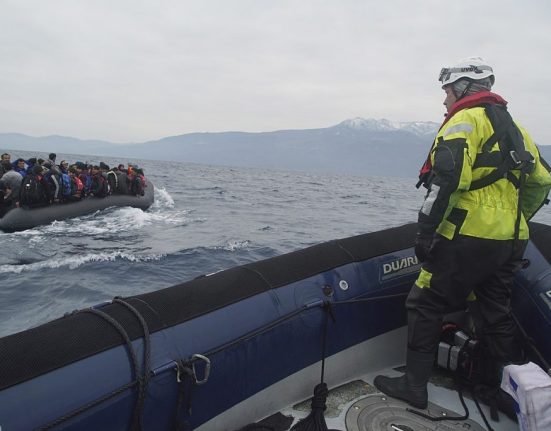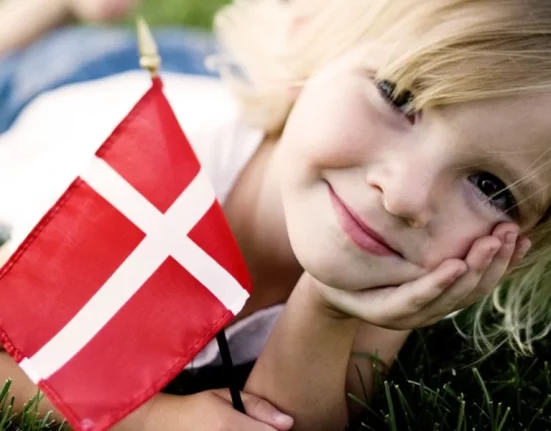According to several anti-torture organizations, Denmark’s plan to rent prisons in Kosovo violates the country’s international obligations.
If the government’s domestic policy flagship of renting 300 prisons in Kosovo to deported third-country nationals becomes a reality, it could set “a dangerous precedent in the future”.
This is the assessment from the World Organization against Torture, which, together with several other international anti-torture organizations, directs sharp criticism of Denmark’s agreement with Kosovo.
“Denmark is a key player internationally when it comes to leading the fight for human rights and the fundamental right to protection. They have the opportunity to be a good example for the rest of the world, but right now, they are leading the worst example,” says Helena Solá Martin, a political adviser in the organization.
Turning a blind eye
In December, the government and the Socialist People’s Party, the Danish People’s Party and the Conservatives agreed to rent 300 prison places to foreigners sentenced to deportation in the Gjilan prison in Kosovo.
The government, the Socialist People’s Party, the Danish People’s Party and the Conservatives made the agreement, which means that from the beginning of 2023, 300 prison places will be rented, and foreigners sentenced to deportation must serve their sentences.
Several experts have described it as “a breakthrough in Danish law”, and there are only a few precedents of similar schemes.
One of the main concerns of the agreement is that Kosovo is not obliged to comply with UN human rights conventions. Therefore several organizations fear that the rights of prisoners may come under pressure.
The government insists that imprisonment in Kosovo will occur according to Denmark’s international obligations, even though experts cast doubt on whether this can be done in practice. The bill will be finally considered in the Folketing on 9 June. And in recent months, attention to the project has not diminished.
Several critical responses from organizations such as the Department of Human Rights and Dignity question how the scheme will be implemented “under the same conditions as in a Danish prison” and Denmark’s international obligations.
If you ask Helena Solá Martin from the World Organization against Torture, it is a “no-brainer” that Denmark should not rent prison places from Kosovo. Therefore, the organization calls on the countries to withdraw from the agreement.
“It is an illusion to think that you can carry out this project without violating Denmark’s international obligations. It is simply not possible.”
Why is it not possible?
“It is not possible to ensure that the prison is run from A to Z according to Danish standards. Especially not when Denmark relinquishes some of its jurisdiction in Kosovo,” she says.
“These individuals have been convicted under Danish law and must serve their sentences according to Danish rules on Danish soil. When you choose to send them away, Denmark tries in practice to bend their international obligations.”
Despite the fierce criticism from several wings, Minister of Justice Mattias Tesfaye (S) is pleased that Denmark has signed a “pioneering agreement that ensures better capacity in our overcrowded prisons”.
In the worst case, it can create rings in the water and make other countries think it is acceptable to make this scheme when Denmark does it.
“Of course, it is not easy to establish a Danish prison abroad, and several difficult choices must be made.”
“At the same time, it is important to emphasize that it follows from the agreement we have entered into with Kosovo that the execution of the sentence takes place under Denmark’s international obligations.”
Denmark relinquishes jurisdiction
At Amnesty International in Norway, Gerald Kador Folkvord also finds it difficult to see how Denmark will be able to meet its international obligations in Kosovo.
Folkvord is a political adviser in the Norwegian branch of Amnesty and followed the process when Norway rented prisons in the Netherlands a few years back. The scheme was criticized as it was difficult for Norwegian authorities to maintain responsibility in the Dutch prison.
Gerald Kador Folkvord points out that the primary reason people thought it could work was that both countries were obliged to respect human rights, while the culture of the prison system in the Netherlands and Norway was very similar.
Here the situation is different in Kosovo, as the European Convention on Human Rights does not bind them, he believes.
“When Kosovo is not obliged to comply with European human rights conventions, the standard risks being lower for the inmates of Kosovo. It makes it difficult to see how to implement this without a violation of rights,” he adds.
Helena Solá Martin believes that it is impossible to ensure that the Danish human rights obligations are complied with when parts of the sentence will be under Kosovaric jurisdiction.
This means that it is not Denmark that is responsible in these areas, and therefore it becomes more difficult to supervise and protect the prisoners’ rights.
Although Denmark does not have jurisdiction in all areas, the government has defended the arrangement whereby Kosovo, in the treaty to the agreement, has committed itself to comply with Denmark’s international obligations – even when the prisoners are outside Danish jurisdiction.
“The purpose of the large and complicated bill we have put forward is that we must ensure that the prisoners’ rights and obligations during their imprisonment will correspond to those that prisoners sentenced to deportation have in prisons in Denmark,” says Mattias Tesfaye, Minister of Justice.
Discrimination against prisoners
Another problem with the agreement, according to Helena Solá Martin, is that it is foreigners sentenced to deportation who must be sent to Kosovo.
It is discriminatory, she believes.
“You send a particular group of prisoners down there, where it is inevitable that they will serve time in some different conditions,” says Helena Solá Martin.
Although the prisoners in Kosovo must serve time under “basically the same conditions as in a Danish prison”, former Minister of Justice Nick Hækkerup (S), who agreed, has made no secret of his views on foreigners sentenced to deportation in Denmark.
“In these times where there are an incredible number of accusations of double standards regarding different sections of the population, this does not help.”
Leads by worst example
The treaty between Kosovo and Denmark has now been signed, and according to the plan, the bill will finally be considered in the Folketing in early June.
Nevertheless, Gerald Kador Folkvord is sceptical about implementing the scheme with the prisoners’ rights intact.
He explains that it can very quickly become unclear which country is responsible for which areas when renting prison places abroad. And as soon as there is uncertainty about the responsibility of the inmates, abuse occurs, he explains.
“It must be very explicit that Denmark has the responsibility throughout. “As soon as you signal to another country that they can do whatever they want with the prisoners, it is inevitable that things will go wrong.”
And although the government maintains the belief that the agreement can be carried out according to Danish standards and obligations, Helena Solá Martin fears what the agreement may mean internationally when it comes to the treatment of prisoners.
“In the worst case, it can create rings in the water and make other countries think it is acceptable to make this scheme when Denmark does it.”








